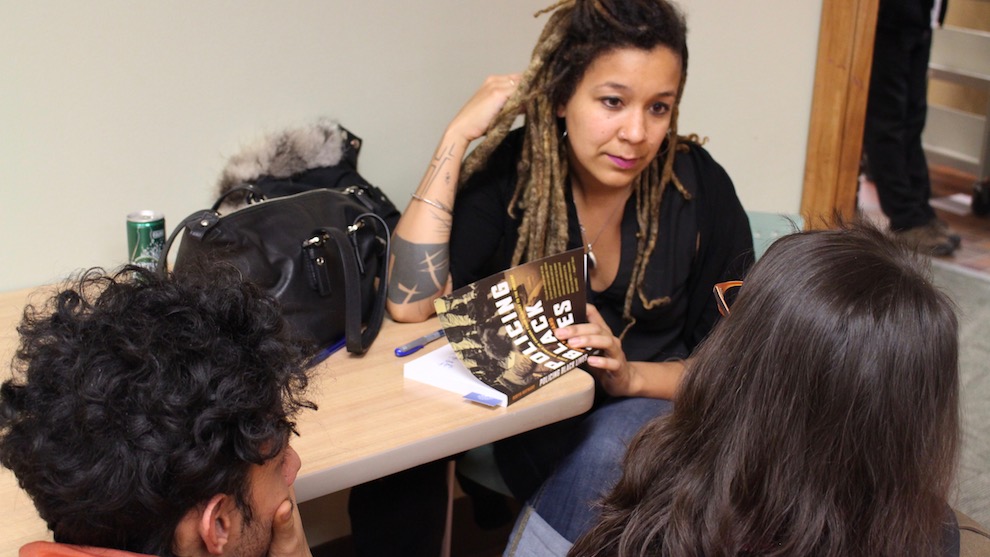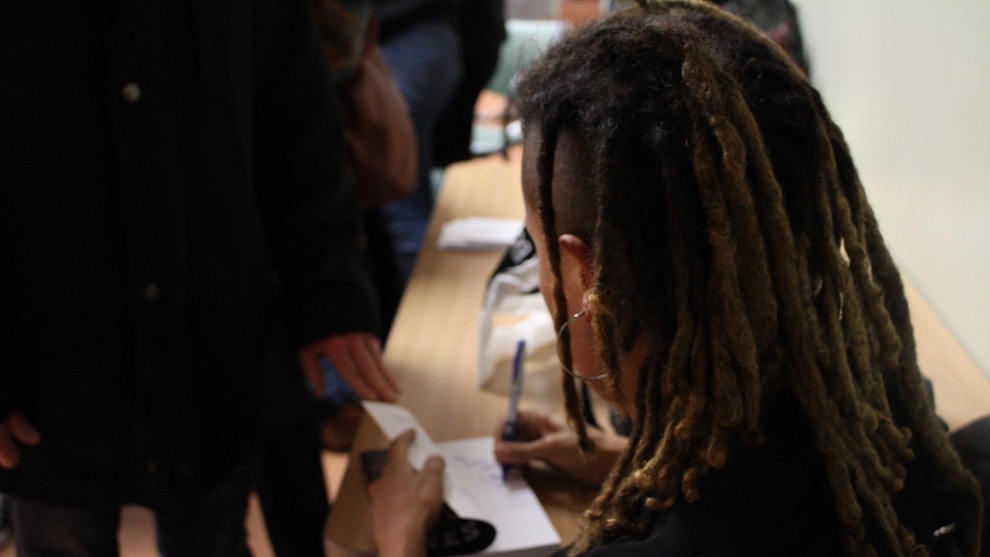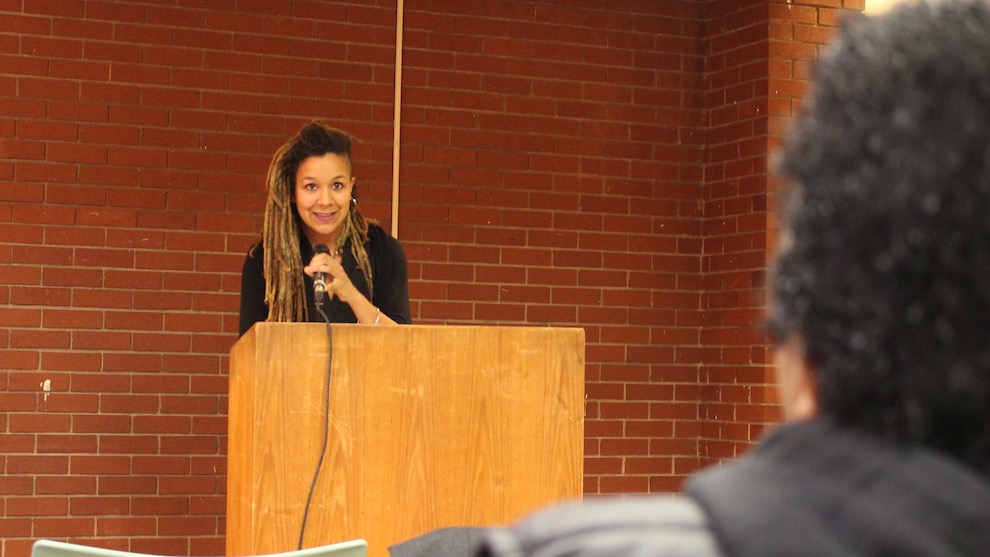Racism
Robyn Maynard visits north-end Halifax to unravel origins of racism in Canada
Policing Black Lives author talks anti-black racism with people in Halifax

caption
Robyn Maynard signs copies of her books for fans.
caption
Robyn Maynard signs copies of her books for fans.Robyn Maynard questions everything Canadians think they know about multiculturalism in her new book, Policing Black Lives.
“There’s a purposeful amnesia regarding the conditions that black people are experiencing,” she said in a phone interview with The Signal.
The black activist and writer is touring the country to promote the book. She made a stop in Halifax on Thursday at the Halifax North Memorial Public Library on Gottingen Street.
In the book, Maynard tells the African-Canadian experience from slavery to street checks. At the Halifax book signing, she said Canadians have neglected a dark and ongoing part of their history: the systemic policing of African-Canadians. And, she said, the notion of “multiculturalism” has been used to veil such racial injustices for decades. Related stories
Dozens of people attended the book signing and talk, including Verona Singer, a criminology professor at Saint Mary’s University.
“There are some big historical issues here,” Singer said Thursday night. “Which is why it’s important that Robyn has been brought here to the north branch library.”
The evening began with two poems by local poet and activist El Jones. Jones then introduced Maynard to the audience.
For about an hour, Maynard spoke about her five years of research. She discussed the origins of anti-black racism in Canada and how the government facilitated the oppression of black people through public and private institutions. She added that policing doesn’t stop at the criminal justice system; it also occurs in the welfare, education and immigration systems.
Fazeela Jiwa, who read and copy edited Maynard’s book, agreed. Policing, Jiwa said, has an impact on every aspect of black peoples’ lives
“Policing is not just the police. There is policing that happens from birth all the way to incarceration, if it gets to that point,” Jiwa said after the discussion.

caption
Maynard said this was her second time in Halifax and she enjoyed her visit.Nova Scotia’s ‘long-standing history of black resistance’
During her talk, Maynard named several people who were criminalized and victimized throughout Canada’s history, including freed African-Nova Scotian woman Lydia Jackson. Jackson, Maynard writes in her book, was sold to a slaver and frequently beaten by her master — even when she was nine months pregnant.
Jackson is an example, Maynard said to the audience, of how the policing of black women has continued today through childcare and welfare systems. Black women today, Maynard said, are still physically and emotionally abused by people in state institutions.
But, Maynard said that African-Nova Scotians also “show us the long-standing history of black resistance in this country.”

caption
Maynard presents her research at the Halifax North Memorial Public Library on Thursday.During her presentation, she used the example of Rocky Jones and the Black United Front of Nova Scotia, a grassroots organization that spearheaded political and economic black equality in the province.
Despite these efforts, Maynard said, there are still many instances of racial inequality, despite “400 years of resistance.”
In January, Halifax Regional Police released data that showed that black people in Halifax are three times more likely to be stopped for police street checks than white people. These numbers reflect a trend in major Canadian cities like Toronto, where black people are more likely to be “carded” than whites.
Carding, or a street check, is the police practice of collecting personal information of people not suspected of any crime.
“The black community is talking a lot about street checks,” Jiwa said. “This book really provides a historical background to explaining how that has happened and why it is a problem.”

